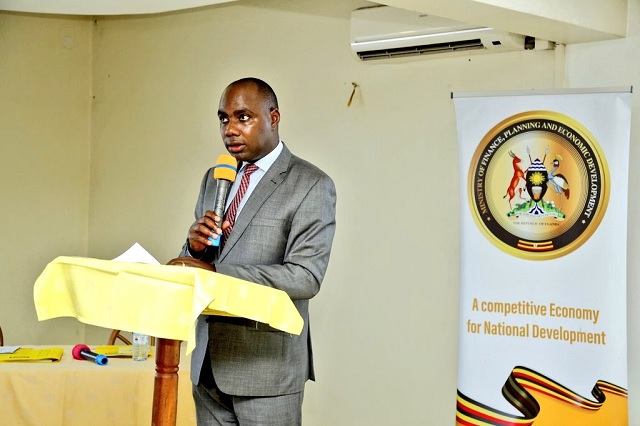
Kampala, Uganda | THE INDEPENDENT | Uganda is on the way to being removed from the warning list of a global financial Industry monitoring agency, but experts warn of new challenges. The Financial Action Task Force, FATF, has commended the country for the measures it has put in place to improve its regulatory terrain against the anti-money laundering and terrorist financing (AML&TF) industry.
However, Uganda will know her fate when experts from the FATF visit early next year. The grey list is the last step to being blacklisted, a situation that would see Uganda basically shut out of the global financial industry or systems. Even on the grey list, some players have put restrictions on transactions with Uganda, including payments, as well as enhancing the scrutiny of the transactions.
The Minister of State for Finance, Planning and Economic Development, Henry Musasizi affirmed the Government’s political commitment and will to support the implementation of Uganda’s Anti Money Laundering and Countering of Terrorism Financing Framework. The Financial Intelligence Authority, FIA is confident that the outcome of the assessment will be positive.
The FATF Plenary last month approved the onsite visit to verify the implementation of reforms earlier recommended, and ensure that they are being sustained. “The visit will also confirm that there is a high-level political commitment,” said FIA Executive Director, Samuel Were Wandera.
This was at the Technical Assistance Workshop in Kampala organised by the East and Southern African Anti-money Laundering Group (ESAAMLG) in preparation for FATF’s International Cooperation Review Group (ICRG) onsite visit to Uganda next month.
Following the placement of Uganda on the Grey List, the Minister of Finance, Planning, and Economic Development wrote to the FATF President to confirm the political commitment by the Government of Uganda, to fully address the remaining deficiencies in Uganda’s regulatory regime.
State Minister Musasizi said the government had, since February 2020, been working with FATF’s ICRG ESAAMLG “in addressing its strategic deficiencies and has undertaken a number of policy and operational measures in line with its action plan”.
FIA’s Wandera listed some of the policy and operational measures like Adopting a National Anti Money Laundering and Combating Financing of Terrorism (AML/CFT) Strategy, Developing as well as implementing risk-based supervision to Financial Institutions and Designated Non-Financial Businesses and Professions (DNFBPs).
Others mentioned were enforcing Beneficial Ownership Declaration obligations, ensuring that competent authorities have timely access to accurate, basic, and beneficial ownership information for legal entities, establishing and implementing policies and procedures for identifying, tracing, seizing, and confiscating proceeds and instrumentalities of crime and implementing Targeted Financial Sanctions related to Proliferation Financing, among others.
Wandera earlier said the experts from FATF would soon be in the country on an assessment tour to verify the recommendations in the first report, and this would inform whether Uganda stays or is removed from the grey list. However, Wandera, who replaced Sydney Asubo as FIA boss in August, expressed confidence in Uganda being struck off the list.
Last month, the financial consulting firm, PwC hailed the country for the steps taken to address the concerns about the inadequate legal and regulatory framework against the ML&TF industry but warned of new emerging challenges like Ponzi schemes. This was in relation to warnings issued by the Capital Markets Authority in reference to the now-closed company, Capital Chicken Ltd.
“Besides allegations of defrauding their victims, these schemes could be exploited as avenues for money laundering. This is primarily because these schemes have limited Know Your Customer (KYC) procedures for onboarding new members,” the firm argued. They reasoned that such schemes “rely on cash or crypto operations,” making it difficult to trace the source of funds.
“Moreover, they usually operate online with no physical presence and often appear and disappear overnight with no warning to the members. These schemes have unclear ultimate beneficial owners,” the PwC commented.
In a statement, it advised the government to consider putting in place regulations that guide the operations of multi-level marketing companies to ensure they operate legitimately and are not used for money laundering. “This is a key action point as Uganda takes steps towards getting off the Financial Action Taskforce (FATF) grey list.”
***
URN
 The Independent Uganda: You get the Truth we Pay the Price
The Independent Uganda: You get the Truth we Pay the Price





